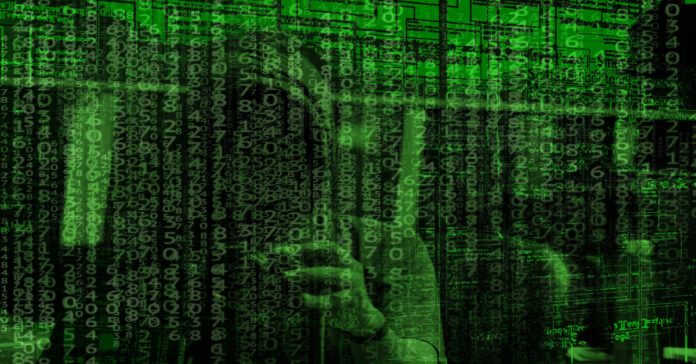Information from a court case reveals that the FBI asked Google for information on every individual who watched one of two YouTube videos, including their name, address, telephone number and account activity. For people who didn’t log in, the FBI requested their IP address. In one case, they requested data on 130,000 people in an attempt to track down one person. Seems like overreach to me.
There has also been a recent case in which the FBI is reportedly visiting people’s houses because of what they posted on social media. Another case of law enforcement overstepping their bounds and ignoring the First Amendment.
What do you watch on YouTube, and what could someone learn about you from reviewing your online account activity?
Here are the topics I watch most frequently on YouTube: homesteading, prepping, primitive living/bushcrafting, firewood cutting and splitting, beekeeping, guns and gear reviews, 2nd Amendment news, and financial news. Then there are the random how-two videos, like how to fix your refrigerator ice maker, and music videos. If the FBI were to break down my viewing habits, they’d consider me to be a prepper with guns and some money who likes rock and roll. The first two are probably enough to put me on their watch list, assuming I’m not there already.
This is the downside of computerization and data warehousing. It makes Big Brother’s activities much easier by giving companies and governments information that they should not have access to.
My Security Steps
I watch YouTube on an account that is not registered in my real name. It is registered to an email using my domain, which is owned by a New Mexico LLC. When I set up the LLC, I used a registered agent, so it does not have my name associated with it. And since that company makes no money, I don’t have to file taxes for the LLC.
Whenever I log in, I use a VPN, and I change the login location from time to time. Right now, my IP address is in Denver. Yesterday, it was in Kansas City. Tomorrow, it will be in Miami or Buffalo. I also use several anti-tracking plugins, including uBlock Origin, Disconnect, and Privacy Badger. The VPN works, too, because when I look at logs in applications, I see myself logging in from places like Los Angles, Canada and Mexico, even though I never left my desk.
I also activated the setting in YouTube that gets rid of my viewing history after three months. And when I watch something that might be questionable, I use the privacy or incognito setting on my browser so it is not saved in my history. I don’t expect that to fool Google, but I expect it to at least keep the video out of my viewing history.
So you’d think I would be pretty safe, wouldn’t you? These actions may be sufficient to protect me from someone who wants to dox me or just show up and talk prepping, but they won’t stop the FBI or anyone willing to spend some time or money tracking me down. Anyone who can serve Google with a subpoena can figure out who I am because YouTube has my phone number.
Phones are the Weak point
I have three phone numbers, home, business and cell. Almost no one has my landline number, but Google has my cell and work number, and my cell hasn’t changed for more than 20 years. I expect it’s in many government and private databases.
If I wanted to be super-private, I’d have to be like the criminal in the movies who buys six burners and uses one and then destroys it. But the problem with that is they can tell what cell you are in and use GPS to track you, which precludes using your phone from home. So if I wanted to use my secret burner phone to get a 6-digit code to allow me to log into YouTube, I’d have to get in my car and drive far away to make it harder for Google to correlate my location with my real identity. It’s just not worth that much trouble.
If I was a spy or a criminal, doing criminal acts with serious consequences, that kind of secrecy might be worthwhile. If millions of dollars or my life were on the line, I’d hop into the car, drive to a big city two states away, make a rash of phone calls, break the SIM card, toss the phone in the back of an 18-wheeler heading the opposite direction, and drive home using an alternate route. But that’s not me. I’m just a dude listening to rock and roll, cleaning his guns, raising his chickens, and trying to survive the end of the world as we know it. Regardless of what some low-level FBI agent thinks or an algorithm says, I’m not much of a threat to democracy.
Other Government Databases
I’ve been paying taxes for more than 40 years, so the IRS knows where I am, what my investments are, and how much money I have made. The Social Security Administration knows how much my salary has been since I was 17 and everywhere I have ever worked. The ATF knows I own a suppressor and likely knows at least half the guns I own.
Every time I’ve flown anywhere since 9/11, the government gets that information. When I travel abroad, they known when I pass through customs. I’m sure there are dozens of more data points, most fairly innocuous, such as when I have paid an entry fee and gone into a national park.
And don’t get me started on private databases. Credit card companies, your cell phone provider, your ISP, even the stores you visit track you. Sure, it’s a convenience to go to Walmart.com and see what you bought before, but I’d waive the convenience to remove myself from their database. There are times I pay cash in the checkout lane rather than do curbside pickup because I’m buying something I don’t want associated with my account.
Add to that the data collectors and collators, the big three credit agencies, and mailing houses that send you catalogs and junk mail. Whew! Here’s a huge amount of data on each of us out there. And most of it is available for sale, and we know the government buys it.
Back in 1999, Scott McNealy, the CEO of Sun Microsystems, said “You have zero privacy anyway. Get over it.” 25 years later, it’s worse, far worse. The government is using data to track you. It reminds me of that long green trail of green digits in the Matrix movies that paint a picture.
Our Saving Grace
The only thing going for us is that there are 320 million other citizens and around 20 million uninvited immigrants out there that the FBI and other government agencies also have to watch. In a way, we’re protected by the herd. Unless we do something that calls attention to ourselves, we won’t rise above the background noise.
Look at how long it took them to prosecute Jeffrey Epstein. Think about how people like Sam Bankman-Fried at FTX and Bernie Madoff got away with running fraudulent financial schemes for years before they got caught and prosecuted. (Sadly, it’s not just shoplifters who get away with stuff.)
My guess is that law enforcement is so swamped, they don’t have time to worry about what we watch on YouTube or say on social media unless you come to their attention for some other reason. And then there is that whole pesky First Amendment thing that gives us the right to watch pretty much anything and lots of leeway about what we say or post.
Just don’t be stupid. Don’t publicly threaten to kill people or blow things up. Don’t call for violence or call attention to yourself. Prep behind the scenes and limit what you say and do on social media. Don’t tell anyone when you buy 200 Silver Eagles or a couple of gold coins. Don’t publish your plans for when the balloon goes up. In other words, be the gray man and stay off the government’s radar.
If you decide to call attention to yourself, make sure you know the potential consequences. Because the government has recently demonstrated that if they really want to catch you, they’ll sort through 130,000 data points to do so, and then they could raid your house in Miami or shoot you in the head after breaking down your door at 6 a.m.







